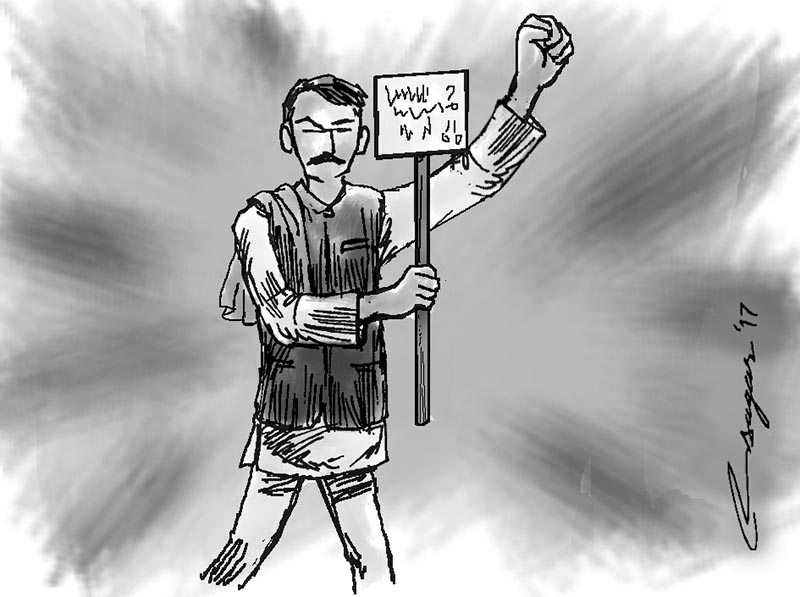‘No ignoring Madhes issues’
Kathmandu, December 23
Political analysts and Madhes watchers say Madhesi parties’ impressive win in provincial and parliamentary elections has given the federal government and the major parties the message that they need to amend the constitution to address Madhesi grievances.
“Comfortable majority of Madhesi parties, particularly the Federal Socialist Forum-Nepal and Rastriya Janata Party-Nepal in Province 2 has given a reply to those who dismissed Madhesis’ genuine demands and Madhesi parties as belonging to a handful of landlords and losing candidates,” said political analyst BhogendraJha. He said Madhesi parties’ win has given the message that Madhesis continue to demand amendment to the constitution.
Proportional representation of Madhesis in all state organs is the key demand that must be addressed to pacify Madhesis, Jha added. “All the big Madhesi leaders of the Nepali Congress lost to RJP-N and FSF-N candidates,” he said.
Another political analyst Tula Narayan Shah said the results of provincial and parliamentary polls were unexpectedly better for Madhesi parties, more than expected for the left alliance and disastrous for the ruling Nepali Congress.
“Madhesi parties won a comfortable majority in Province 2 and a good number of seats in the Parliament not because they were popular but because they led the Madhesi movement demanding amendment to the constitution. “Madhesi voters have given the message that they want the constitution amended and that they are with Madhesi parties that protested discriminatory provisions in the constitution,” Shah added. He said Tharu voters had also given a similar message.
“Resham Lal Chaudharywon from Kailali-1 not because he was popular but because voters believed he was in the forefront of protests for the rights of marginalised communities, including Madhesis, Tharus and Janajatis.
Shah said Madhesi parties could have fared better had their leaders crafted better strategy in Tarai districts east and west of Province 2. Madhesis and Madhesi leaders living in Tarai districts other than Province 2 lack confidence about prospects in those districts. UpendraYadav’s decision to shift his base from Morang and Sunsari to Saptariand lack of electoral alliance between the FSF-N and the RJP-N were reasons behind the poor performance of the two Madhesi parties in the eastern Tarai district, Shah argued. Had Madhesi leaders focused more on Tarai districts of Provinces 1, 5 and 7, they could have won more seats.
Columnist Chandra Kishore said election results of Tarai districts sent a clear message to the government and major parties that they must address the grievances of Madhesis and Tharus. “Some in Kathmandu dismissed Madhesis’ grievances as championing a borrowed agenda. They said Madhesi people were not in favour of protest and demands. Now they must respect the mandate of Madhesi people and address their genuine grievances,” he said, adding that political stability and socio-economic progress could be achieved only when genuine demands of Madhesis and Tharus were addressed.
Revision of provincial boundaries, population-based electoral districts, proportional representation in all state organs, population-based representation in the National Assembly and linguistic autonomy are some key demands of Madhesi forces.
All six chairpersons of the RJP-N presidium won parliamentary elections. Out of 165 parliamentary FPTP seats, the FSF-N and RJP-N won 21 seats. The FSF-N and RJP-N command majority in Province 2 to form a government.
Out of 64 FPTP seats of Province 2, the FSF-N won 20 and the RJP-N 15. The FSF-N and the RJP-N won nine and 10 seats under the provincial PR systems respectively.






